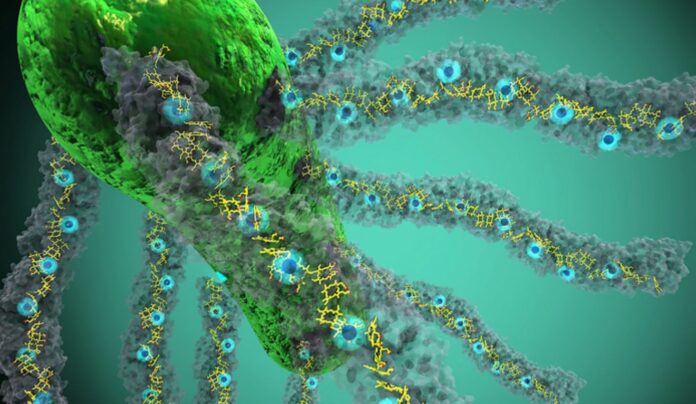The natural world has its own electrical grid. It is made up of a global web of tiny nanowires made by bacteria in the soil and oceans. These nanowires “breathe” by letting extra electrons out.
In a new study, scientists from Yale University found that light is a surprising helper when it comes to encouraging this electronic activity in biofilm bacteria. They discovered that exposing bacteria-produced nanowires to light resulted in an increase in electrical conductivity of up to 100 times.
The findings were reported in the scientific journal Nature Communications today.
The senior author, associate professor of Molecular Biophysics and Biochemistry (MBB) at Yale’s Microbial Sciences Institute on Yale’s West Campus, Nikhil Malvankar, noted that the photocurrent demonstrated by the dramatic current increases in nanowires exposed to light is stable and robust and lasts for hours.
The findings might offer fresh perspectives as researchers look for new methods to use this submerged electrical current, which might be used for everything from eradicating biohazard waste to developing new renewable fuel sources.
Almost all living creatures breathe oxygen to expel extra electrons during the process of turning food into energy.
However, soil bacteria that have existed for billions of years underground or in deep waters have discovered a mechanism to breathe without access to oxygen by “snorkeling” through small protein threads called nanowires.
Researchers were surprised by the rise in electrical current when bacteria were exposed to light, since most of the bacteria tested life deep in the soil, far from where light can reach.
Previous research had demonstrated that nanowire-producing bacteria grew more quickly when exposed to light.
“Nobody knew how this happens,” Malvankar added.
In the recently published research, a team from Yale University led by postdoctoral researcher Jens Neu and graduate student Catharine Shipps came to the conclusion that a metal-containing protein known as cytochrome OmcS, which is what makes up bacterial nanowires, functions as a natural photoconductor. The nanowires significantly facilitate electron transfer when biofilms are exposed to light.
“It is a completely different form of photosynthesis,” Malvankar remarked. “Here, light is accelerating breathing by bacteria due to rapid electron transfer between nanowires.”
The research group led by Dr. Malvankar is looking into the potential applications of this new understanding of bacterial electrical conductivity for accelerating the development of optoelectronics (a branch of photonics that focuses on devices and systems that find and control light) and capturing methane, a greenhouse gas that is a major contributor to global warming.
Image Credit: Getty
You were reading: Breakthrough Study Shows A Completely Different Form Of Photosynthesis Hidden In The Dark
